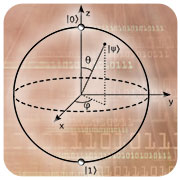
To discover the deepest mysteries of the universe, no ordinary computer will do. Solving some of the most challenging computer science problems — notably toward the advancement of machine learning — will require quantum computing. To that end, Google announced that it is launching the Quantum Artificial Intelligence Lab with NASA’s Ames Research Center, which will host the lab.

This facility will house a new quantum computer from D-Wave Systems and the Universities Space Research Association. Researchers from around the world will share time on it, with the common goal of studying how quantum computing might advance machine learning.
As part of the selection process, Google, NASA and USRA created a series of benchmark and acceptance tests that the D-Wave 512-qubit system needed to pass before it was installed. The D-Wave Two met — and even exceeded — the required performance specifications.
“In early fall 2013, the installation and calibration are anticipated to be completed,” said NASA spokesperson Jessica Culler.
Quantum Power
The D-Wave supercomputer is “super” not just because it is larger and faster than the average desktop, but also because it is capable of machine learning, which remains a highly difficult computing challenge. Among the attractions of the quantum lab project for Google is its potential to transform Web searching and even speech recognition technology. It may also be used to model diseases and climate phenomena.
“Another important application of quantum computing is to perform large-scale simulations of quantum mechanical phenomena,” said Michael F. Crommie, a physics professor at the University of California, Berkeley.
“These calculations are spectacularly difficult on classical computers, and a quantum computer could perform them much more efficiently,” he noted.
“This application was suggested by Richard Feynman, and it would be an incredibly useful advancement for many branches of physics and chemistry — from band structure to drug design — to be able to perform large-scale quantum simulations on a quantum computer.”
Thinking Machines?
The result could be machines that have advanced problem-solving capabilities and come closer to actually being able to think. Quantum computers offer the ability to carry out two or more calculations simultaneously, which could help researchers find the so-called “optimal solution” faster and in ways that traditional computers thus far have been unable to do.
“When we combine quantum computing with artificial intelligence, we tend to get something like an ultrafast Watson — that is, the ability to analyze information at an incredible rate and identify patterns, but not make the intuitive leaps that we normally equate with real intelligence,” said Rob Enderle, principal analyst at the Enderle Group.
“This kind of emphasizes the artificial part of AI, letting people make more-intelligent decisions more quickly, but not eliminating the person from the loop — which means we still have things like confirmation bias to overcome, which could simply make bad decisions harder to refute,” he told TechNewsWorld.
“The person backed by the quantum system making the bad judgment would be nearly unbeatable,” Enderle suggested.
The D-Wave system in the Quantum Artificial Intelligence Lab could be utilized to develop applications for a broad range of problems, from Web search to a search for exoplanets. It could even support operations in a mission control center, and provide the most creative problem-solving process available under the known laws of physics.
“This could include identifying patterns in global communication to catch spies or terrorists; looking at massive amounts of sensor data to determine the best ways to address global warming — and better identify the causes; weather prediction; early identification of approaching species-ending threats; likely cures and causes for unique illnesses; and cross-comparison of interspecies DNA elements that aren’t active to determine what making them active might do,” Enderle added.
To the Future and Beyond
As yet, scientists likely have only scraped the surface of research that might be conducted — and mysteries solved — at the new facility.
“The quantum computer is still in the early stages of installation and testing,” said NASA’s Culler, adding that there was no “specific research to discuss at this time.”





















































